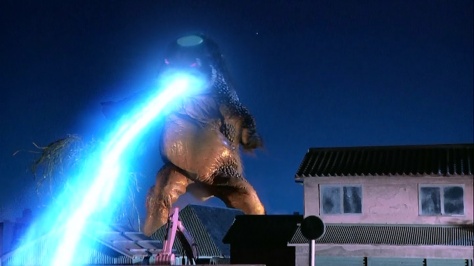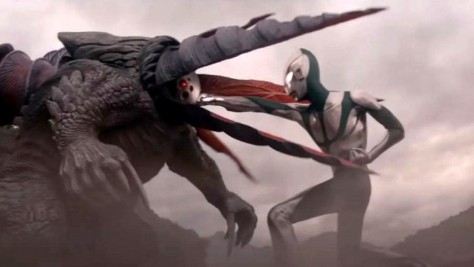

Japan is another country where giant monster movies are produced. Did any of you know this?
In the gaps between major kaiju films, you can always expect to see alternative sources pick up the slack, including fans. The late aughts and the early 2010s were one of those gaps, and while neither of the two subjects I’m covering here, one a short film that aired on television and the other a feature-length film that comes off as multiple short films cobbled together, are technically fan-produced, they certainly feel like they are. They carry with them the same loving attempts to recreate classic tokusatsu effects (utilizing veterans of the field), and the same desire to fill as much of the cast with recognizable faces from other tokusatsu productions—all things we saw in previous site subject The Great Buddha Arrival, which is an actual fan-made film. In this case, both are also affectionate parodies of the genre, capturing the technical craft while making light of their cliches—with that in mind, another one of their major similarities to each other might be their oddly uneven approach to spoofing the form.
Continue reading Geharha: The Dark and Long-Haired Monster (2009) & Death Kappa (2010)


